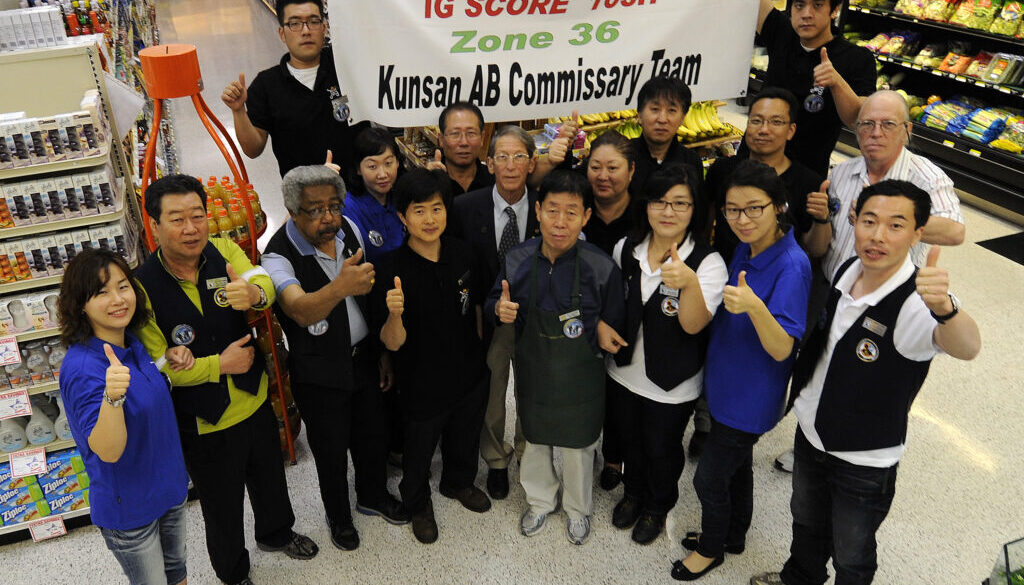The Central America – South Korea Free Trade Agreement brings mutual benefits
Table of Contents
Contact us if you are in need of assistance in doing business in Central America.
The Central America – South Korea Free Trade Agreement (FTA) ensures that the exercise of state regulatory powers does not translate into the creation of unnecessary barriers to commercial exchange between the participating countries.
Following a process that had its beginnings in 2015, the nations of Costa Rica, Honduras, Panama, El Salvador, and Nicaragua signed the Central America – South Korea Free Trade Agreement on February 21, 2018.
The Central America – South Korea Free Trade Agreement ensures stability
The entry into force of this FTA was and is a source of great satisfaction for the six signatory countries. This is so because it has created a commercial environment that will allow the participating nations to conduct trade within a regulatory framework of legal certainty and predictability.
The Central America – South Korea trade accord has established the preferential conditions that are continuing to lead to the deepening of trade relations and business opportunities between these two highly complementary economies.
In an overall global context that is marked by the high degree of interconnection between economies and multilateral participation in global value chains, it is essential to strengthening an environment of international rules-based exchange of goods and services. Doing this will result in greater dynamism in the world economy as a whole. This is particularly important during a time when significant frictions between major trading partners exist.
The Central America – South Korea trade treaty has a significance that transcends purely commercial considerations. It has served to create a strategic partnership between a group of participants that are fully committed to the values of the Organization for Economic Co-operation and Development (OECD). Both parties to the accord have pledged to apply international best practices in public policymaking to improve the quality of life of their respective countries’ inhabitants.
In addition to this, the confirmation of South Korea’s accession as an extra-regional member of the Central American Bank for Economic Integration (BCIE) has further strengthened an existing institutional tool for the development of socio-economic projects throughout the region.
It is also important to note that, in addition to an increase in the trade of goods and services, the Central America – South Korea Free Trade Agreement aims to create new business connections for both parties. For instance, the governments of Costa Rica and South Korea have been particularly active in promoting bilateral investment opportunities to businessmen and women in both countries.
Favorable conditions
At the commercial level, there is a high degree of optimism regarding the expected gains that this instrument will offer the exporters and importers of each party to the accord. An illustration of this fact is that Costa Rica was recently able to obtain highly favorable conditions of access to the South Korean market for its main export products. These include coffee, sugar, non-alcoholic beverages, medical devices, plastic items, prosthetic items, among others.
From the South Korean perspective, beneficial trading terms were also negotiated for its most exported goods and services. These include products that contain a high level of innovation, digital literacy, and connectivity, such as the Internet of Things (IoT) and 5G network development technologies.
Increased prosperity for participating nations
The Central America – South Korea FTA will not only translate into expanded opportunities for producers in Central America to access the world’s 11th largest market as noted by the International Monetary Fund (IMF) in terms of GDP size but will also benefit Korean consumers by providing them with things like high-quality Central American grown coffee at a better price. Additionally, South Korean physicians will be able to perform medical procedures on their patients using devices produced in Central America’s most developed country, Costa Rica. Additional items from the region that are sold to South Korea free of tariffs and duties include agricultural products such as a variety of world-class fruits. These include bananas, pineapple, melon, and watermelon, among others.
Similarly, opportunities for South Korean exports to improve their sales in the Central American market will translate into optimal conditions for the region’s consumers to access goods such as vehicle parts, medicines, cosmetics, textile products, and, of course, high-tech goods for personal and home use at favorable prices. Moreover, with South Korea being the 13th country in the World Economic Forum’s Competitiveness Ranking, the Central America – South Korea Free Trade Agreement can be expected to give a measurable boost to commercial transactions and to generate healthy economic competition that will benefit consumers in all of the participating countries.
Of particular note is the fact that the Central America – South Korea Free Trade Agreement has established the ground rules that ensure that the healthy exercise of state regulatory powers does not translate into unnecessary barriers to trade; that encourage fair marketing; that seek to facilitate the exchange of goods and services; which aim to promote access for businesses and consumers to electronic redemption mechanisms; and that favor commercial exchange that is based on respect for labor rights and the care and preservation of the environment.
In summary, the Central America – South Korea Free Trade Agreement represents a powerful, progressive, and balanced commercial instrument that will continue to fuel aspirations to continue to strengthen the bonds that bind the signatory nations for years to come.
Contact Us
Please use this form to contact us and we will respond as soon as possible:





